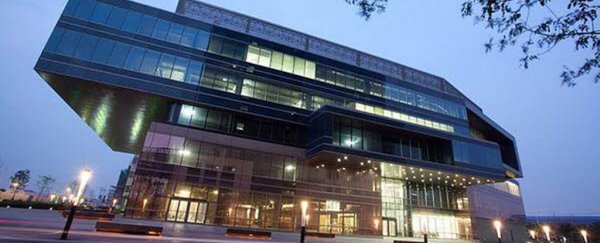China is no stranger to the commercial opportunities of genetic editing, but its latest ambition applies the controversial techniques on a much grander scale.
The nation is currently building the world's largest cloning factory in a government-sponsored business park in Tianjin, with the facility set to commence operations by mid–2016. With a projected cost of US$500 million, the factory will primarily focus on producing cloned cattle embryos for food.
The 14,000-square-metre facility, being led by a Chinese company called Boyalife Group, is expected to produce 100,000 cattle embryos a year initially, eventually increasing to 1 million, which could see it becoming responsible for 5 percent of China's annual premium cattle market.
"Clone technology is already around us. It's just that not everyone knows about it," said Xu Xiaochun, the company's CEO, as reported by Owen Guo at The New York Times. "And I can tell you all that cloned beef is the tastiest beef I have ever had."
According to Xu, the production of cloned beef will help bolster the Chinese food industry, with local farmers struggling to produce enough livestock to meet market demand.
"One reason we have so much low-quality beef is because we haven't applied clone technology," said Xu. "This is the only way to allow Chinese and many other people in the world to enjoy high-quality beef in an efficient manner."
In addition to beef production, however, the facility is also planning on cloning a range of other animals, including sniffer dogs, pet dogs, and even racehorses. Its creators also believe the cloning factory will also be beneficial for conservation purposes, saying cloning could help save endangered species from becoming extinct.
"This is going to change our world and our lives," Xu told Tom Phillips at The Guardian. "It is going to make our life better. So we are very, very excited about it."
Animal cloning for meat and dairy production does exist elsewhere in the world, although on a much smaller scale. In countries like the US and UK, cloning often requires special permits or is largely used for breeding purposes as opposed to selling for food.
At mass-production levels, however, some are skeptical of the facility's stated focus, saying the expense involved in cloning may not be cost-effective for making and selling meats like beef.
"I think clone technology can be used for endangered species, but it's not very necessary for animal husbandry," Ma Wenfeng, an analyst at Beijing Orient Agribusiness Consultant, told Guo. "I don't think this will be very economical, and I doubt this model will take off any time soon."
